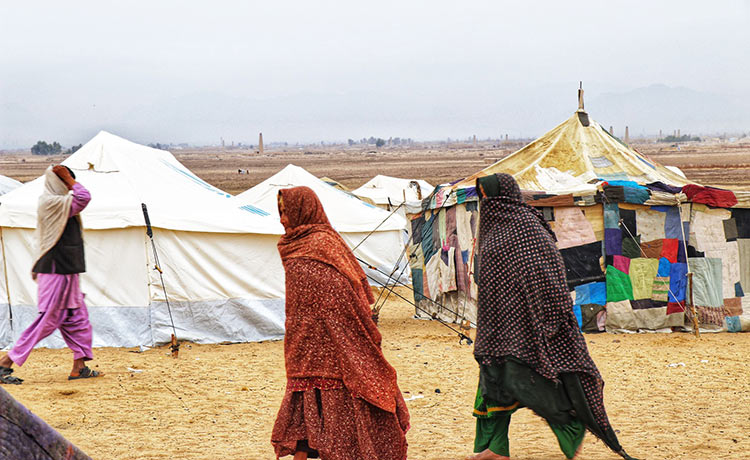News
At high-level UN meeting, Afghan women call for support
- 17 September 2021
News
UNITED NATIONS, New York – “My country is in a humanitarian crisis,” said Yalda Royan, an Afghan women’s rights advocate, speaking ahead of a high-level meeting on the humanitarian crisis in Afghanistan, held at the United Nations on Monday. “Eighteen million Afghans are in need of humanitarian aid, the majority of whom are women and children.”
The country’s political unrest and volatility, coupled with the suspension of international donor funding, is threatening the lives and welfare of millions of Afghans. The country now faces the potential collapse of its health system, following the suspension of aid to essential health projects.
“In Afghanistan, every two hours a woman dies from pregnancy-related complications; every two hours a motherless child is born,” UNFPA Executive Director Dr. Natalia Kanem said to ministers and delegates at the high-level ministerial meeting.
A preliminary UNFPA estimate indicates the suspension of basic health services and essential supplies provided by its Sehatmandi project could lead to 51,000 additional maternal deaths, 4.8 million unintended pregnancies, and a near doubling of the unmet need for family planning between now and 2025.
Despite the precariousness of the situation in Afghanistan, UNFPA is committed to continuing its life-saving operations. In recent weeks, the organization has continued to support and operate nearly 200 family health houses and protection centres, which provide critical health and other services for women, girls and families.
But this support is at risk without urgent funding.
The UN has issued an appeal for $606 million through to the end of 2021, of which UNFPA appealed for $29.2 million to respond to the reproductive health and protection needs of more than a million vulnerable women and girls.
At the high-level meeting, $1.2 billion was pledged.
These funds will enable UNFPA to increase its number of service centers, expand the services provided, and reach hundreds of thousands of women and girls with health and hygiene supplies. It will also support COVID-19 protection kits and winterization supplies targeted to female-headed households, which are especially vulnerable. It will also provide health sector support to survivors of gender-based violence.
“If a woman is in labour and needs an emergency Caesarean delivery, or if she’s a victim of violence, she turns to UNFPA,” Dr. Kanem said.

In addition to supporting humanitarian operations through funding, the leaders, ministers and delegates at Monday’s meeting called for efforts to support the rights of women and girls.
“Afghan women and girls must not be abandoned,” Dr. Kanem said. “Neither religious beliefs nor politics must ever be used to justify curtailment of women’s full participation in all aspects of society. Afghan women and civil society fought hard to claim this right. Now more than ever, they need us in their corner.”
Securing the dignity, rights and well-being of women and girls is not only an end in itself; it is a precondition for the welfare of the country as a whole, Shaharzad Akbar, chairperson of Afghanistan’s Independent Human Rights Commission, emphasized in a video statement.
“The international community should not lose sight of the vision of a prosperous Afghanistan, standing on her own two feet,” she said. “This vision will not be achieved without women’s full participation.”